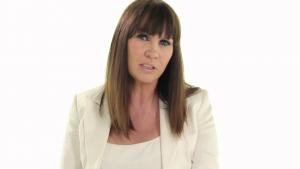If you lack self-esteem it might feel like nothing can help – but there’s plenty that can be done, says Annie Ashdown, clinical hypnotherapist and confidence expert. You new self-image starts here
- CONFIDENT PEOPLE ARE HUMBLE
Here’s the thing people don’t grasp – confidence is quiet, arrogance is loud. Confident people have a robust self -belief, an attitude that demonstrates optimism, assertiveness, enthusiasm, and self – assurance in their talents and abilities. Arrogance or hubris in this comparison is having unmerited confidence. Arrogant people have an inflated ego, which comes from a deep sense of insecurity. Many people confuse the two. The paradox however is that many fakes, fanatics and fools have an inflated sense of self – worth, yet so many of my wise, talented amazing clients are full of self-doubt.
The big giveaway is when people communicate; confident people display humility, grace and respect where as arrogant people communicate in a hostile, antagonistic and aggressive manner.
confident people display humility, grace and respect where as arrogant people communicate in a hostile, antagonistic and aggressive manner
Arrogant people are unable to participate in honest, spirited debates and conversations without showing disrespect and even contempt. Arrogance doesn’t want us to have any flaws. Confident people possess HOW (honesty, openness and willingness) – keys to growth and change. Arrogant people have blind spots so they don’t see their own shortcomings, but they love spotting yours. They see others as objects they can control, manipulate, ignore or use as and when they want. Confident people champion you, support you and acknowledge your assets.

2. IT’S OKAY TO FEEL UNWORTHY (lots of us do)
With female clients the more successful they become, the more they lack confidence. I explain to them that if they grew up feeling loved and accepted and were allowed to make choices, have their own thoughts, beliefs and feelings, with a sense of being valued and respected, it is highly likely they formed a healthy self – esteem and this will stay strong through adversity and/or success . However if they were criticised, controlled and/or harshly disciplined, humiliated, put down, unsupported or left alone for long periods of time, it’s highly likely they grew up feeling deep shame for not being not perfect and this is likely to result in them feeling underserving, unworthy and of little value when they become successful and some will turn this inwards and punish themselves by finding ways to sabotage their relationships or career.
The clinical symptoms most frequently reported are depression, lack of self – confidence, and low self – esteem
Through my years of research its never ceased to astonish me how many movie stars, top achievers in business and athletes have what’s called ‘the imposter syndrome’ (topic of my next book). They freely admit they have chronic self – doubt as deep down they don’t believe they are good enough. The clinical symptoms most frequently reported are depression, lack of self – confidence, and low self – esteem. With those who are not in the public eye the paradigm of perfectionism and the origins of shame and self –doubt are perpetuated by being conditioned by the media. Because they don’t feel they measure up to this image they begin to feel they are unworthy. The paradox here is perfectionism is unattainable therefore it makes no sense why anyone would beat themselves up because they don’t measure up to something that is unattainable?
MORE: 7 THINGS CONFIDENT WOMEN DO
3. SPOT THE DEAD GIVEAWAYS OF LOW CONFIDENCE (in yourself and others)
Some low confidence behaviour is insidious, such as distorted thinking disorder (stinking thinking) in which you think of yourself as unloving, unlovable, incompetent, inadequate – this type of thinking will without question permeate every aspect of your life. It will affect what you assume, your beliefs, your interpretations, and your perceptions. You will be self – critical, self – judgmental of yourself and others and this will cause issues in your decisions and choices.
When you do not have a robust inner self, you leave yourself wide open and vulnerable to disrespect, emotional and even physical abuse.
You may not always trust people who are trustworthy but it is likely you will trust those who aren’t. You may stay in a work situation or relationship which is toxic as you will doubt your ability to do any better. You may fear looking foolish, people please, not say what you mean or mean what you say, dread taking risks, give up on dreams, forfeit goals, sabotage amazing opportunities, and these behaviours can hold you back from asking for a raise or promotion, learning new skills or experiencing true happiness. When you do not have a robust inner self, you leave yourself wide open and vulnerable to disrespect, emotional and even physical abuse. Living in this fast-paced, challenging world without high self -esteem and confidence is setting yourself up for failure.

MORE: SELFIES AND LATE NIGHT FACEBOOK USE AFFECT CONFIDENCE
4. LOW SELF-ESTEEM CAN BE CHANGED
I have helped a vast amount of women change their perceptions, habits and beliefs and build their confidence muscles. It’s important to remember confidence is a learned behaviour, not an inherent defect. I had zero confidence and chronic low self – esteem which manifested into a severe eating disorder and depression spanning over 20 years. As an ex-actress and model, I loved the constant applause, attention and accolades, especially from men. It fed my ego very nicely, but none of it satisfied my deep hunger for self-approval. No amount of press cuttings, pay cheques or adulation could ever compete with the self-confidence and self-approval I possess today.
confidence is a learned behaviour, not an inherent defect
5. SOME THERAPIES WORK BETTER THAN OTHERS
Here are the results of a comparative study cited by American Health magazine:
- Psychoanalysis; 38 per cent recovery after 600 sessions
- Cognitive Behavioural Therapy; 72 per cent after recovery after 22 session
- Hypnotherapy; 93 per cent recovery after six sessions.
I am a huge fan of therapy but it doesn’t’ equip you with tools to make changes, it brings a heightened self- awareness and a healing component. But your negative self – beliefs are stored in the subconscious and no amount of talking therapy will change this as it takes a lot of time, discipline and determination to re-frame them. The power of the subconscious mind must never be underestimated.
When I trained to become a clinical hypnotherapist, I learned to understand the difference between the conscious and the subconscious mind and found hypnotherapy was an amazing technique to change your perspective. Your subconscious mind is so powerful it can assimilate up to 400 trillion responses at the same time, therefore making lasting changes and re-framing old habits into new habits can only be done effectively at a subconscious level.

MORE: WHY 2015 IS THE YEAR TO LOVE YOUR BODY

and a Healthista contributor.
Like this article? Sign up to our newsletter to get more articles like this delivered straight to your inbox.





















































